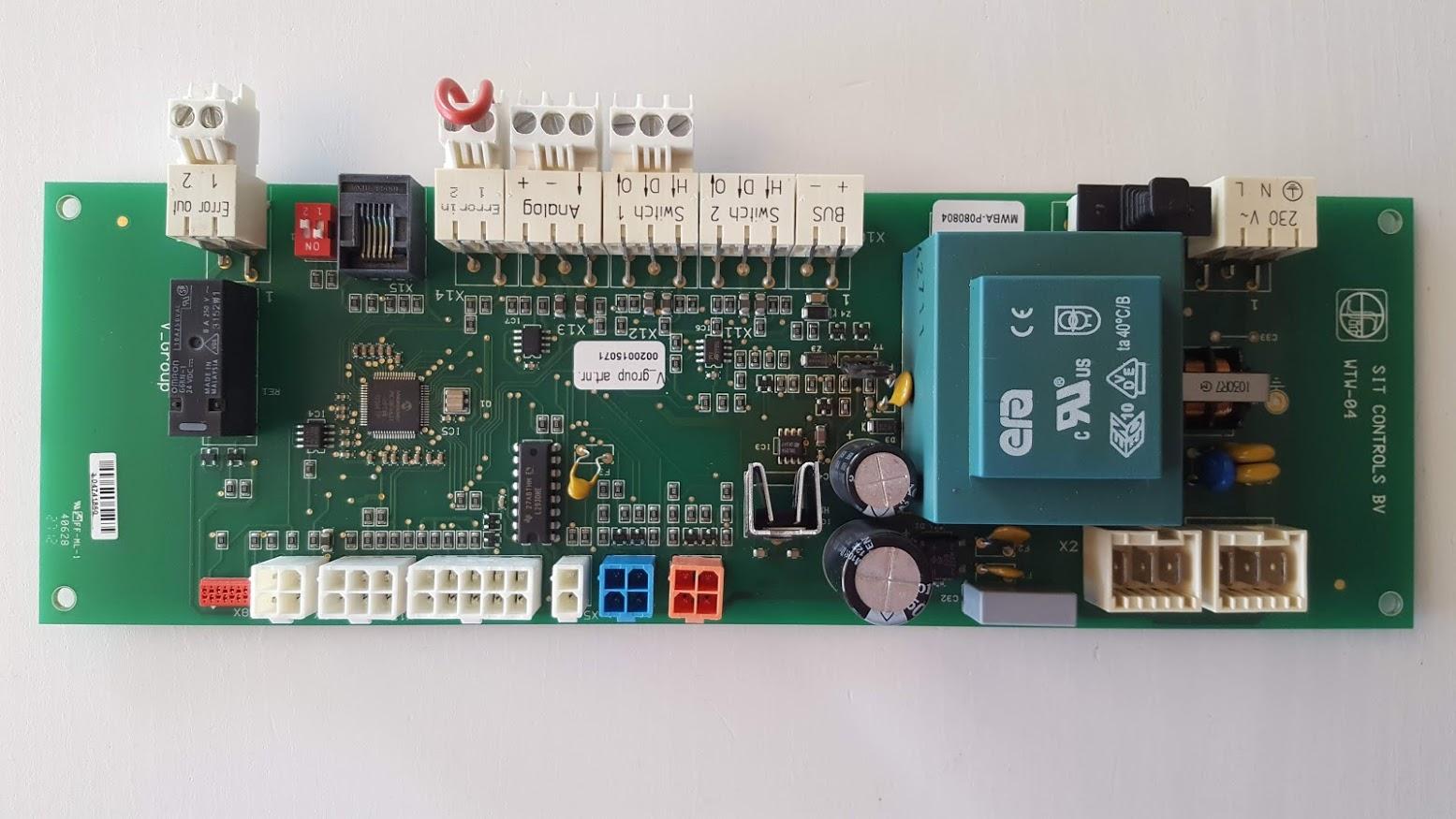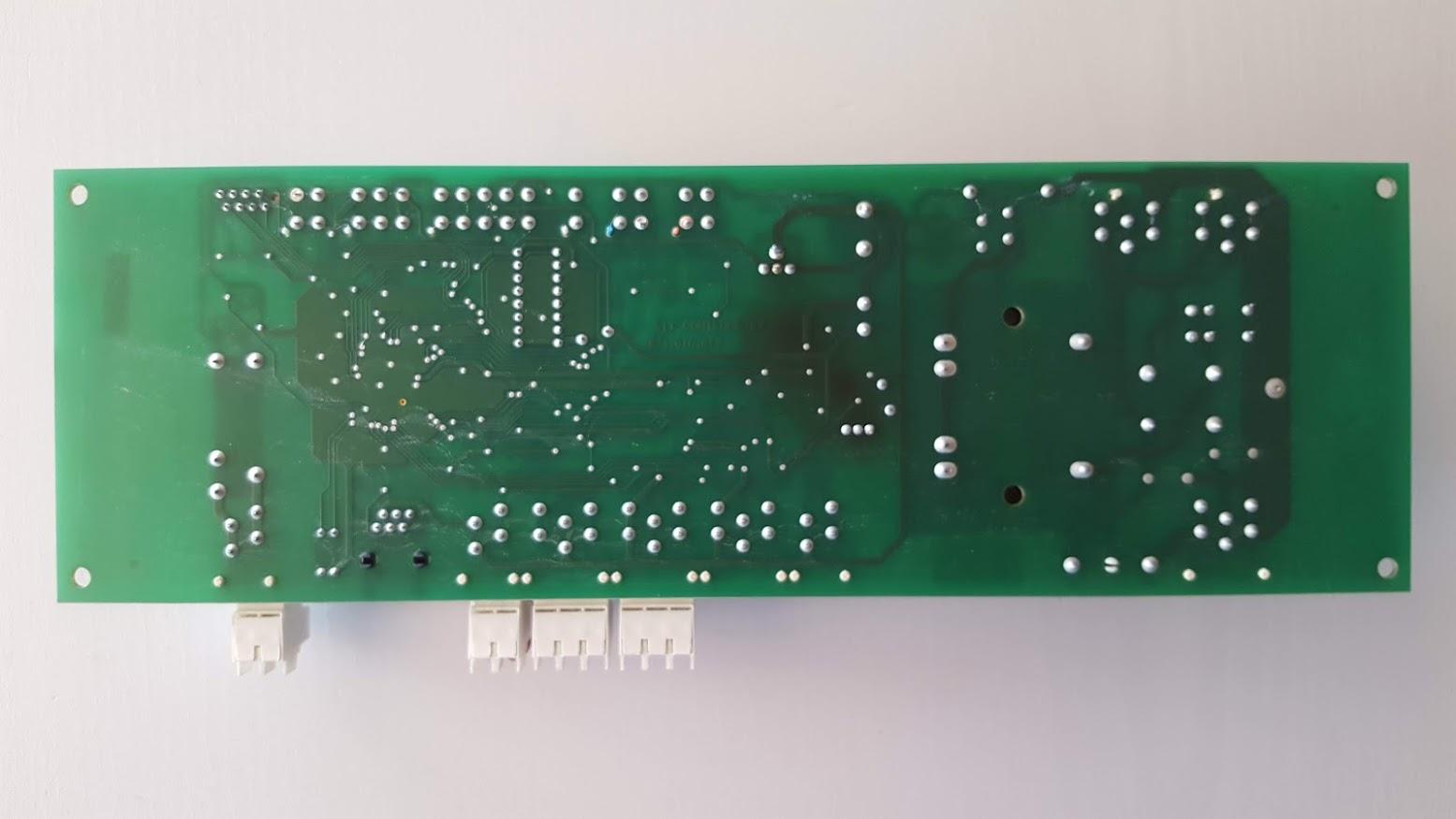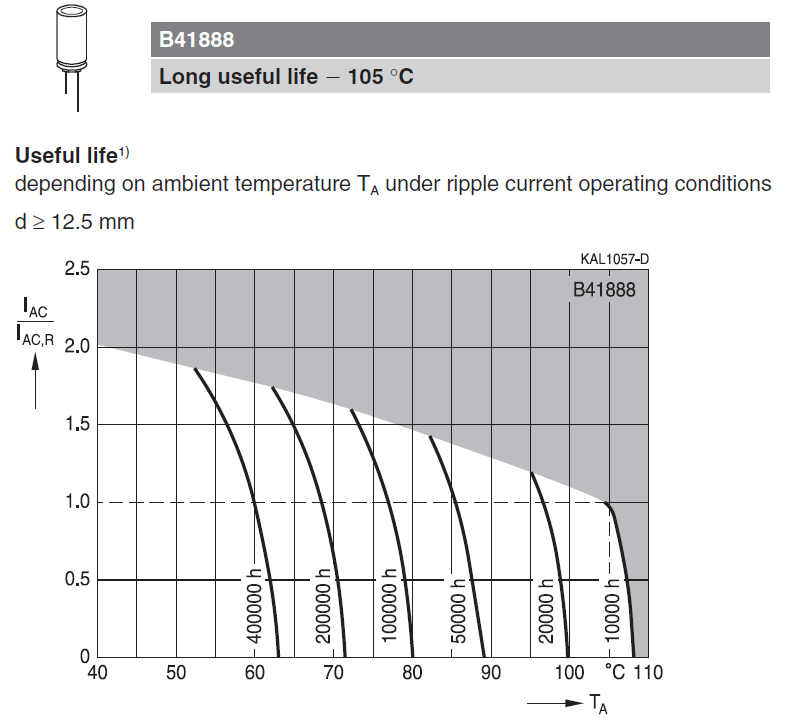This is a controller board for a home ventilation system. It runs fine most of the time but sometimes the ventilation stops for one minute, then starts again and runs normally for anywhere between one minute and many hours.
Internet search results indicate that the two capacitors are at fault; the system works again for other users after they have replaced those two capacitors (1000uF25V, 1000uF50V,) so I am going to replace these two capacitors even if they visually look fine. I figure that even if they are not the cause of the failure, getting new ones won't do any harm.
1) Replacements are listed as e.g. 5000 hours lifespan.
a) That sounds awfully short for an always-on system. I don't want to fix this problem over and over.
b) Could I use solid-state equivalents instead; would that give a longer service time of the repaired board?
However, looking at the board it seems there is (was?) a heat problem nearby, but not right there. The reverse side shows that spot more clearly.
2) Could it be that the problem is not those capacitors at all, but rather another component? I can solder, but electronics is not my strong point so I am clueless how to identify and troubleshoot. From the discoloration on the reverse side, it looks like three component became hot (marked red in the third image): IC "78L05A", resistor "3321", and the transistor "BD438". Does this discoloration indicate a failure or is that expected with normal use?





